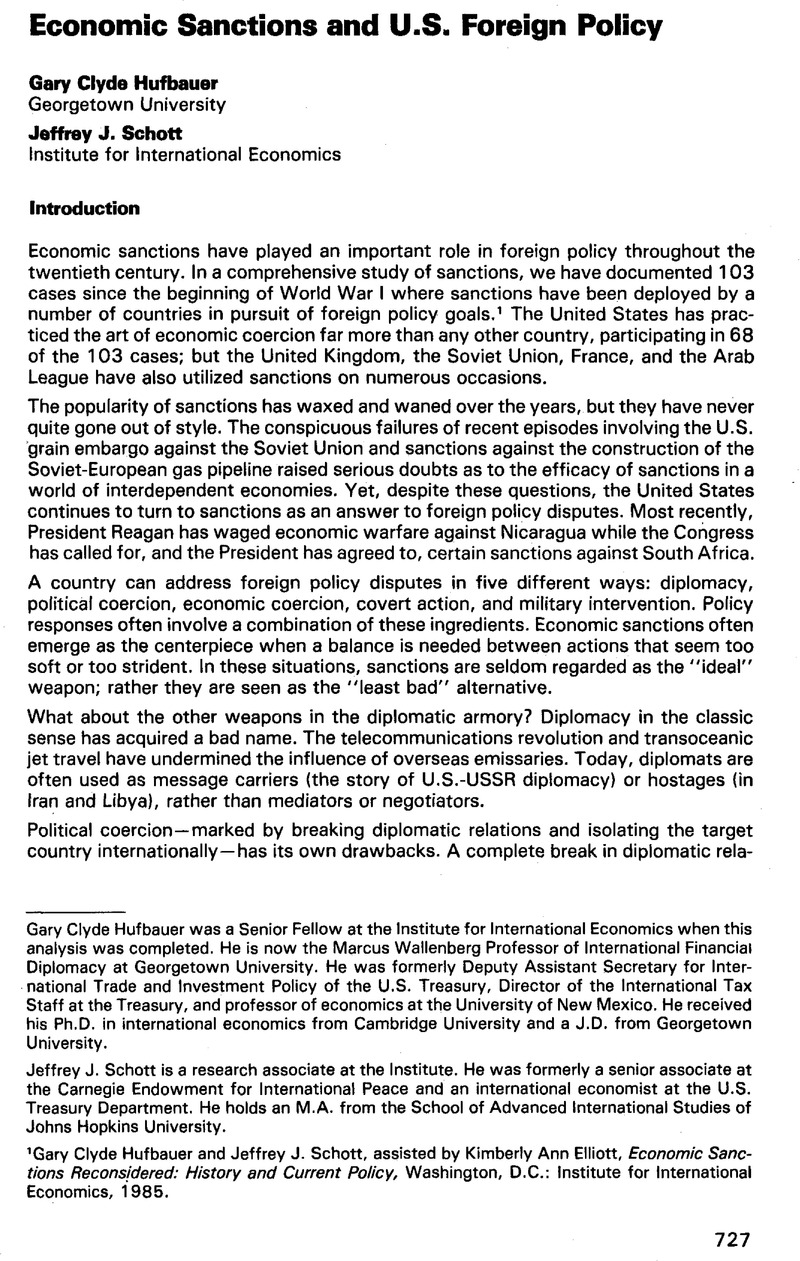Published online by Cambridge University Press: 25 November 2022

1 Hufbauer, Gary Clyde and Schott, Jeffrey J., assisted by Elliott, Kimberly Ann, Economic Sanctions Reconsidered: History and Current Policy, Washington, D.C.: Institute for International Economics, 1985.Google Scholar
2 The same percentage applied to cases in which the United States was involved.
3 Ironically, the Carter Administration used sanctions to destabilize the Somoza regime, thereby ushering the Sandinistas into power.